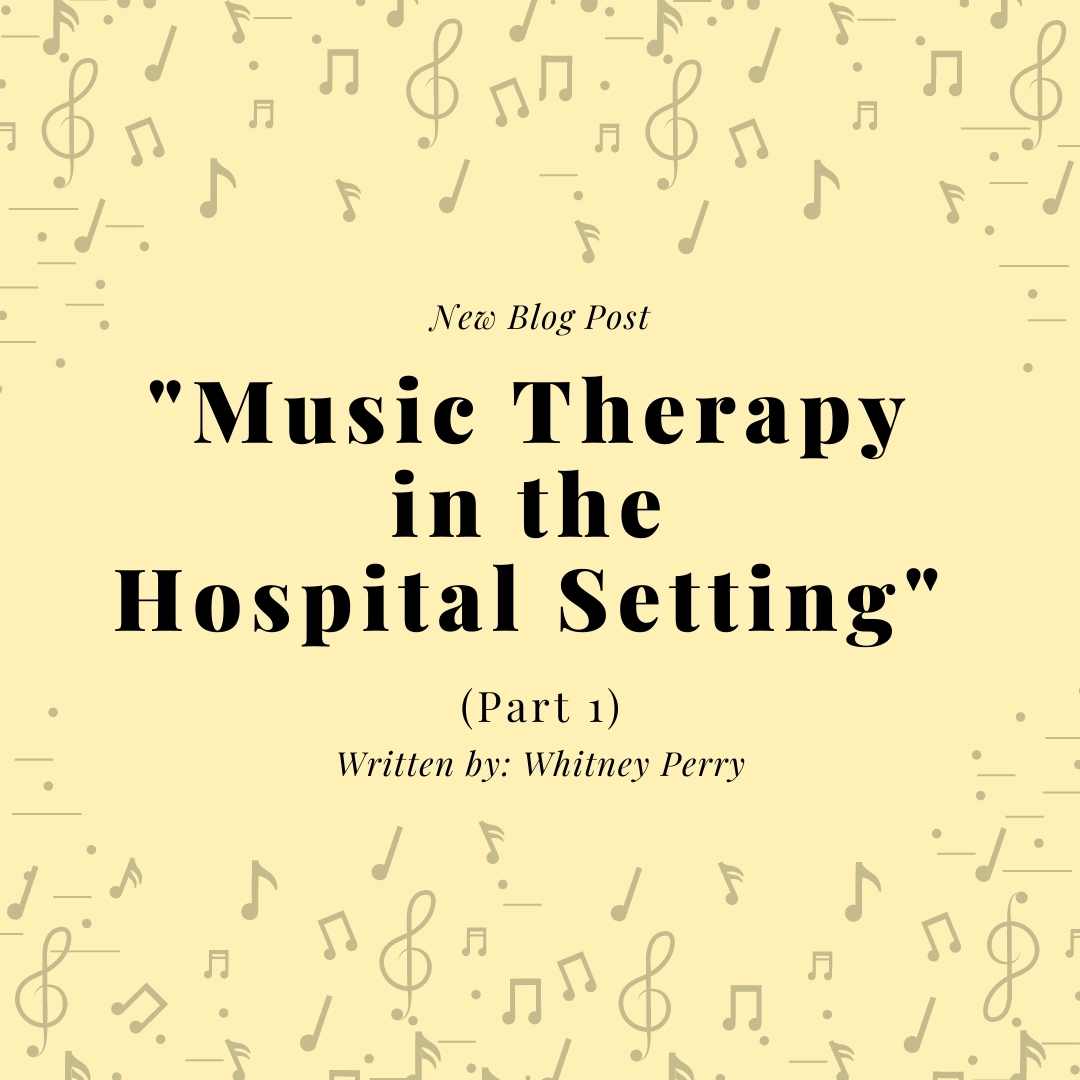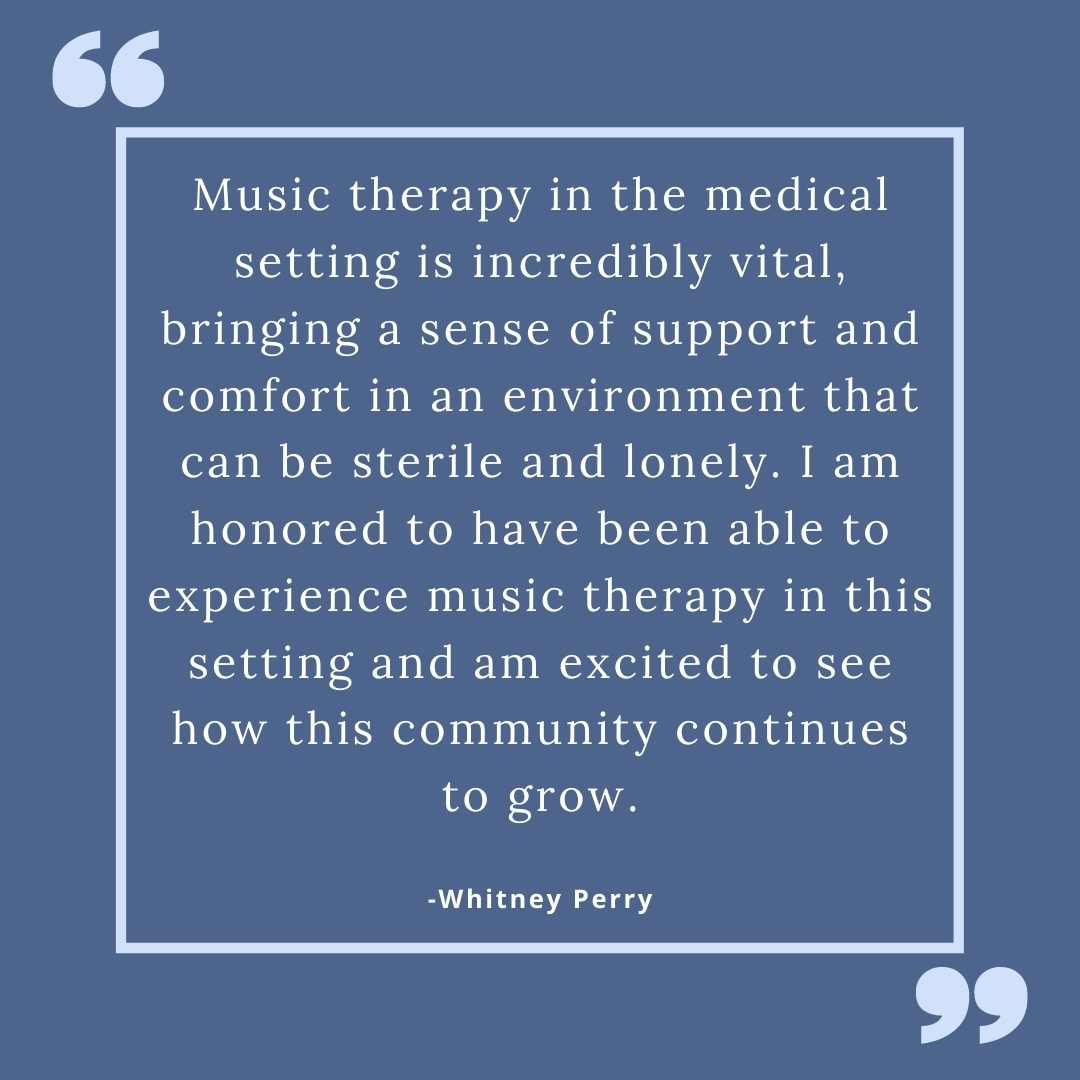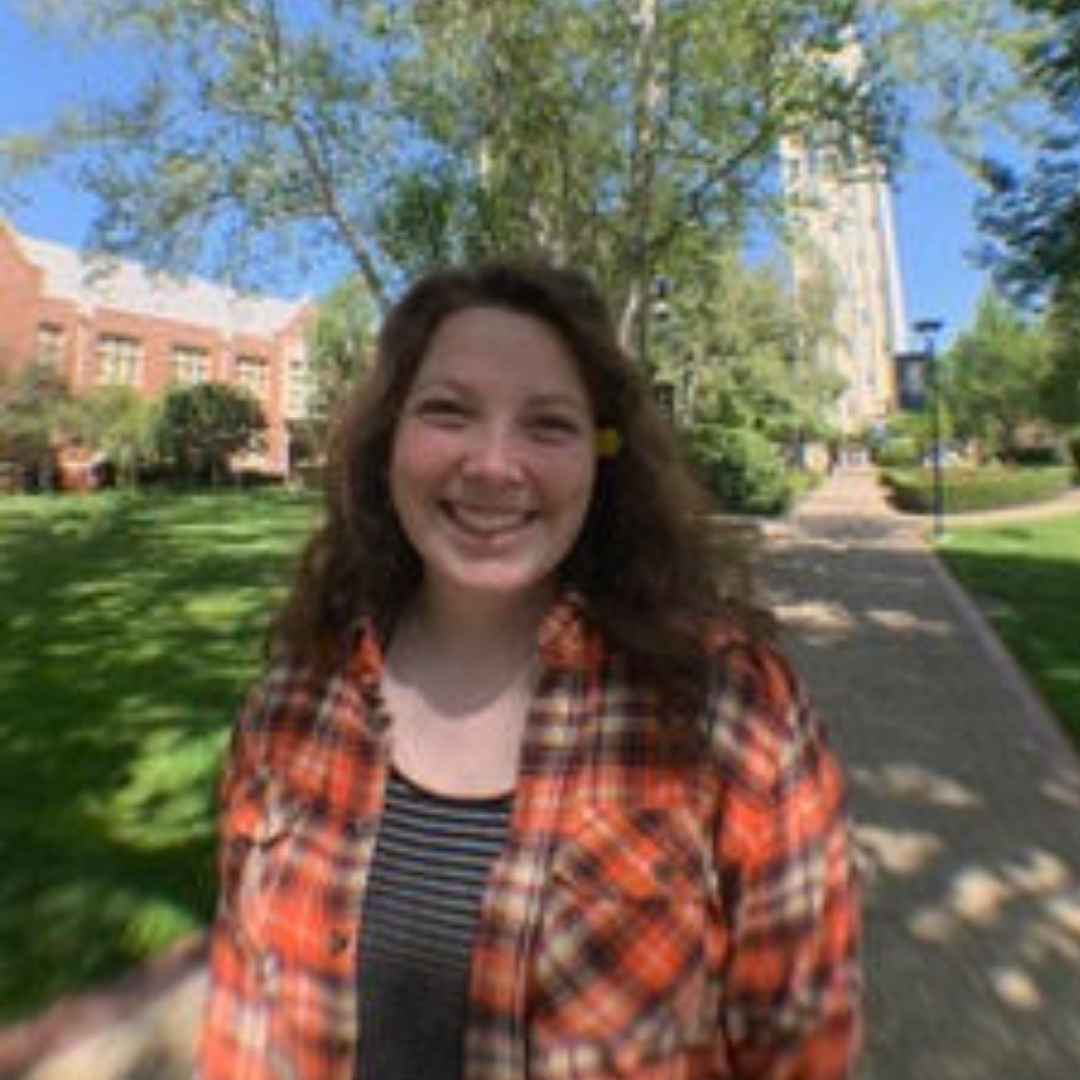Music Therapy in the Hospital Setting (Part 1)
Music therapy has always captivated me as a universal language with the amazing power to touch emotions, foster healing, and provide comfort. My fieldwork experiences at university were diverse, but each placement always evoked the same passion and intense desire for authentic and genuine human connection. In June of 2021, I began my internship journey with MusicWorx and Resounding Joy in San Diego, California. Entering a primarily medically based internship was intimidating. I had no previous experience with this population and I knew that I was about to be stretched out of my comfort zone.
Exploring the new world of medical music therapy proved challenging. Each day brought new opportunities for growth and learning. Having only worked with groups in the past, the individual aspect of hospital work felt strangely intimate. Because I typically interacted with large numbers of people, I was accustomed to somewhat “surface-level” interaction.
I didn’t fully understand how much deeper music therapy could go. Additionally, the hospital was full of medical jargon and unfamiliar diagnoses, not to mention the faster paced cycle of referral, assessment, treatment implementation and termination. To be completely transparent, I hated it.

Unexpected Challenges
In the beginning, every day was uncomfortable. There was so much to learn, and every patient presented new challenges. Back-to-back sessions were exhausting, and by the end of the day I felt burnt out mentally, physically, and emotionally. When I received my senior placements and realized I would be working 3 full days, sometimes more at different hospitals every week, I didn’t think I could do it. However, after working with this schedule for several weeks, I began to get the hang of it.
Initially, even knocking at a patient’s door to introduce myself was terrifying. You had to have the right tone, and present yourself and your profession well enough in 10 seconds that the patient was inclined to let you in. That elevator speech you’ve heard about? Explaining music therapy in 10 seconds? I wanted to master that. I needed a go-to introduction that was good enough to make anyone I encountered want music therapy. I was so focused on saying the right thing and presenting myself the right way, that I failed to recognize I was simply introducing myself to someone new. I failed to remember that this was a regular person. Someone I was meeting for the first time. I didn’t need to sell myself to them; I needed to provide a friendly face in a foreign place, and ask what I could do to support them. Once I stopped evaluating what I was doing right or wrong and started focusing on the patient’s needs, things started to get easier.
While I was accustomed to initial assessment sessions, observations, and interviews prior to beginning treatment with a client, I quickly learned that assessment in the medical setting was much different. Everything was assessment. Within the first several minutes, we would assess pain, anxiety and dyspnea (shortness of breath) on a scale of 1 - 10 (1 being not much at all and 10 being the worst possible). These three symptoms tended to be some of the most common reasons for referral, and it is safe to assume that most patients in the hospital are experiencing some level of pain (due to diagnoses/admission) or anxiety (new environment, new diagnosis, new medications, etc.). It is also important to assess pain and dyspnea to determine what types of interventions may not be accessible for the patient. Aside from this initial verbal assessment, I came to realize the value of physiological indicators and general conversation as assessment.
Using these assessment methods helped give me an idea of what might be an appropriate course of action for the sessions, while providing the client with enough space to take the lead. Discovering what it meant to follow the client’s lead was perhaps the biggest lesson I learned in this setting. It was amazing what would happen when I surrendered some control.
NEW blog post, Music Therapy in the Hospital Setting, written by Whitney Perry. Part 1 of 2. Share on X
Gaining Experience and Sharing Resources

Because I felt ill-equipped and overwhelmed at the start of my internship, I spent a lot of time creating and compiling lists of resources that have been helpful in the hospital setting. As I gained more experience and confidence, I realized that others might benefit from these resources as well, so I decided to create a website.
For Music Therapists is an online resource designed to provide new professionals with considerations and helpful tips when jumping into the hospital setting. On this site you will find intervention ideas (lyric analysis and songwriting prompts), shopping lists (items I found helpful during my internship journey), and videos from MT-BCs demonstrating appropriate instrumental skills for this population.
My goal is to continue to develop this resource over time, updating the site with new intervention ideas, tips for longevity in the field, song and app suggestions, and insights from other music therapists. The website includes a blog section and a chat feature, both of which were created in hopes of fostering community.
Music therapy in the medical setting is incredibly vital, bringing a sense of support and comfort in an environment that can be sterile and lonely. I am honored to have been able to experience music therapy in this setting and am excited to see how this community continues to grow. Many thanks to Bear Paw Creek for allowing me to be a part of their music therapy month project in 2022.

